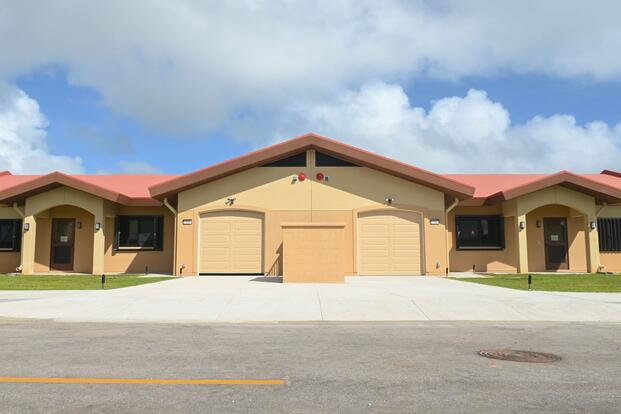Being stationed at a location with a hot summer or a cold winter may make it harder to pay large energy bills. Budget billing is a popular solution to this problem, but it may cost you more in the long run. And even the simple act of using automatic payments may increase the amount you pay for electricity.
Budget billing programs, offered nationwide, allow customers to pay the same amount each month for utilities such as electricity, even though actual usage varies seasonally. At the end of the time period, usually a year, the utility company then compares actual expenses to how much the customer paid during the year. If they used less electricity than they paid for, they get a refund. If they used more electricity than they paid for, they have a balance due. Budget billing is meant to help households manage cash flow by preventing large bills during months of heavy use.
Read More: How to Plan for an Extended Government Shutdown
But a study from Duke University’s Sanford School of Public Policy uncovered an unexpected side effect of budget billing. The research found that this financial predictability may come with a hidden cost: People on budget billing tend to use more electricity overall.
The study analyzed 16 years of electricity billing data from a South Carolina utility company, comparing customers who used budget billing to those who paid their actual usage each month. On average, households enrolled in budget billing consumed about 7 percent more electricity than it is estimated that they would have used otherwise. In fact, the program’s intended purpose of helping families avoid excessively large bills seems to reduce the desire to conserve energy.
When people pay a flat monthly rate, they no longer see an immediate connection between their actions and their bills. In a standard billing system, a higher bill after running the air conditioner more often or running a light-filled holiday display serves as immediate feedback that encourages conservation. Budget billing removes that feedback. Even though the utility eventually balances the account, paying the same amount each month reduces people’s awareness of their consumption. Many months may pass between the decision to turn up the heat and the large bill caused by overconsumption. Not only can customers not see the consequences of their behavior, but they are truly unable to make changes to their behavior in real time.
The same research also looked at automatic bill payment, in which customers set their bills to be paid automatically from their bank accounts. While this system is designed for convenience, those users also consumed 4% to 6% percent more electricity than customers who did not use automatic payment.
Read More: State Tax Filing Options for Military Households
Why does this happen? Well, when a cost becomes less visible, people think about it less. And when people don’t think about a cost, they tend to spend more. If higher use doesn’t immediately lead to a higher bill, then people don’t think as much about taking that longer shower or adjusting the temperature a few degrees. And if they don’t open the email, or see the paper bill, then they may not even notice that a bill has increased, even if they aren’t on budget billing.
What does this mean for you? It’s easy to think it means you shouldn’t use budget billing or automatic utility payments. But that’s not necessarily true. Financial benefits exist to both budget billing and automatic payments. Automatic payments can help avoid late fees. Budget billing can provide stability in your spending plan.
But what you can do is make sure that automatic payments and/or budget billing don’t mean you aren’t tracking your spending. If you have automatic payments, be sure to open that email bill each month and see how much it is. If you use budget billing, your payment will be the same, but you can open the actual bill to track your usage. Some utility companies even let you compare your utility use to that of your neighbors.
The takeaway isn’t that budget billing and/or automatic payments are bad. But it’s important to remember that even if you’re paying the same amount each month, that doesn’t mean you’re spending the same amount each month. And just because you aren’t opening a paper bill and pushing the buttons to make a payment doesn’t mean you should ignore the amount of the bill. Use the tools for the benefits they give, but don’t ignore the underlying utility use that can impact your overall finances.
Get the Latest Financial Tips
Whether you're trying to balance your budget, build up your credit, select a good life insurance program or are gearing up for a home purchase, Military.com has you covered. Subscribe to Military.com and get the latest military benefit updates and tips delivered straight to your inbox.





